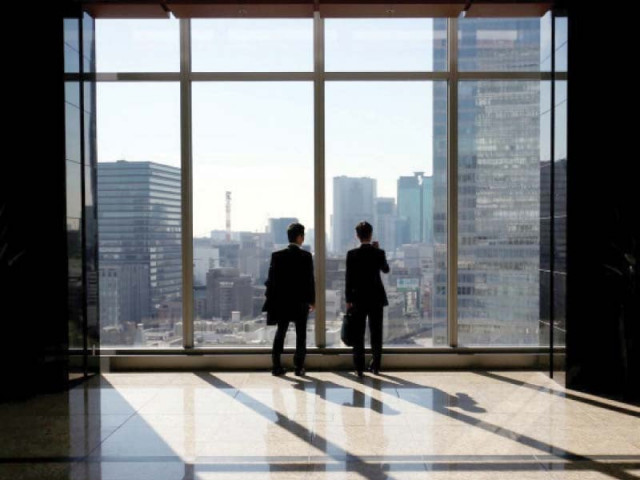Asset disclosure condition to be eased
Govt under pressure to relax condition about beneficial owners of companies

The government may relax the disclosure condition about the ultimate owners of Pakistani companies to ward off pressure from the wealthiest people, who are reluctant to fully reveal their assets and want the continuation of secrecy.
The coalition government also appears reluctant to withdraw the Rs8 billion tax relief proposed for the stock market three weeks ago by lowering their capital gains tax.
Finance Minister Miftah Ismail had promised to withdraw the concession but it still remains in the Finance Bill 2022 that has almost been given final touches. On June 10, the government proposed an amendment to the income tax law. The amendment was aimed at binding companies to disclose the names of their ultimate owners who directly or indirectly control at least 10% shares or voting rights or exercise ultimate effective control through direct and indirect means, including control over the finances or decisions.
The step had been taken to avert chances of any international espionage through the control of these companies and also minimise the use of illegal money in acquiring stakes in firms and associations of persons.
For this purpose, the government introduced the “beneficial owner” definition and proposed to bind the companies to share the record of beneficial owners.
Every company and association of persons shall electronically furnish particulars of its beneficial owners in such form and manner as may be prescribed. Every company and association of persons shall update the particulars of its beneficial owners as and when there is a change in the particulars of the beneficial owners. However, the sources said that the government was under extreme pressure from the wealthy families to relax the proposed condition by setting the disclosure limit either at 26% or 30%.
The current proposed limit is 10% and its relaxation will exclude all those persons who will have less than any new determined limit, to be prescribed in the Finance Act.
Sources said that there was also pressure on the government not to withdraw the capital gains tax relief given to the stock market.
On June 10, the government gave billions of rupees in income tax relief to the stock market by lowering the capital gains tax rates on sale of shares after holding them for two years and completely abolished the tax by the sixth year. The government has proposed the rate at 15% for the shares sold within one year and once again linked the tax on gains with the holding period.
The Finance Bill 2022 showed that the government had proposed to charge 15% capital gains tax, if shares are sold in the first year. The rate is reduced to 12.5% and eventually to 2.5% if the shares are sold after five years.
There is no tax on the gains made by selling the shares after six years, according to the Finance Bill.
Two weeks ago, the Finance Minister had told The Express Tribune that the Prime Minister also ordered the withdrawal of this exemption in the final Act. However, the sources said that the exemption still exists in the final draft that is being prepared by the FBR and will be tabled in the National Assembly next week to get its approval.
The estimated revenue collection from the stock market is around Rs20 billion and according to sources the relief can be as high as Rs8 billion a year, if the stock market returns back to over 45,000 points level. The index closed over 40,000 on Friday after the market crashed on the news of 10% super tax.
The 10% super tax has been imposed on the income of tax year 2022. For the Bank it will come into force from January 1, 2022 but for all other companies it will be effective from July 1, 2021. For the banks, the effective tax rate will be 52%, including 10% super tax.
Finance Minister Miftah Ismail said on Friday that the Super Tax will be effective from tax year 2022.
In the final draft, the government may also reduce the proposed 2% capital value tax on vehicles besides omitting the taxable limit of Rs5 million value of the car. It may propose 1% CVT on all cars of 1,300 cc and above to be registered from July 1 onwards.
The vehicles registered before July will be exempted from the levy.
In order to reduce chances to avoid vehicle registration tax by the heavy duty private vehicle owners who declare their private cars as commercial, the government may omit the word private motor vehicle from the law.
In order to promote entertainment, the government may offer tax-free import of machinery facility, exemption of withholding taxes at the import stage for cinemas to be opened in cities where no such facility exists. It may also offer concessions on production of local films.
The government has also proposed a fixed tax for the small builders. Miftah Ismail wants Rs1,500 per square foot rate for commercial construction and Rs1,000 for residential construction. But the FBR wants to set lower rates. The small builder is defined as the one who undertakes construction on a 2,500 yards land.
The commercial importers have been placed in the final tax regime but their withholding tax rate will be 4%.
The government may also amend the clause introduced on June 10 to collect tax on the deemed income from properties. The government will treat these immovable assets as capital assets to avoid legal complications.
The proposed changes may still exclude any capital asset or property owned by the resident person from the deemed income tax. The agricultural land has also been excluded from the tax, except farm houses. Any constructed property in respect of which the completion certificate has been obtained from the concerned authority will also be excluded from the levy. Sources said that a major exclusion could be the properties given on rent.
Published in The Express Tribune, June 26th, 2022.
Like Business on Facebook, follow @TribuneBiz on Twitter to stay informed and join in the conversation.



















COMMENTS
Comments are moderated and generally will be posted if they are on-topic and not abusive.
For more information, please see our Comments FAQ